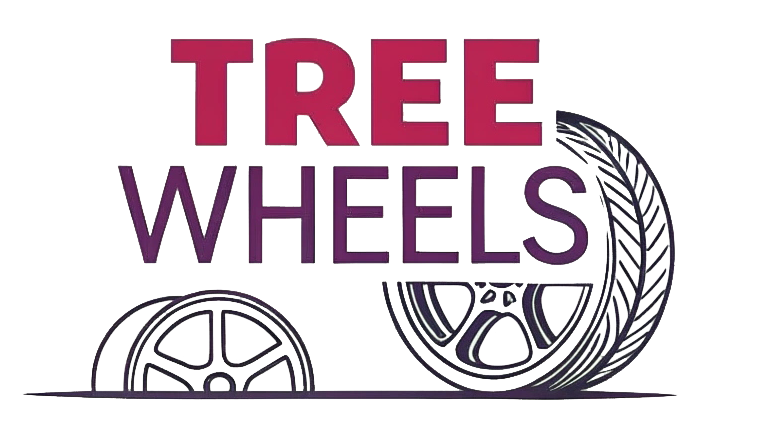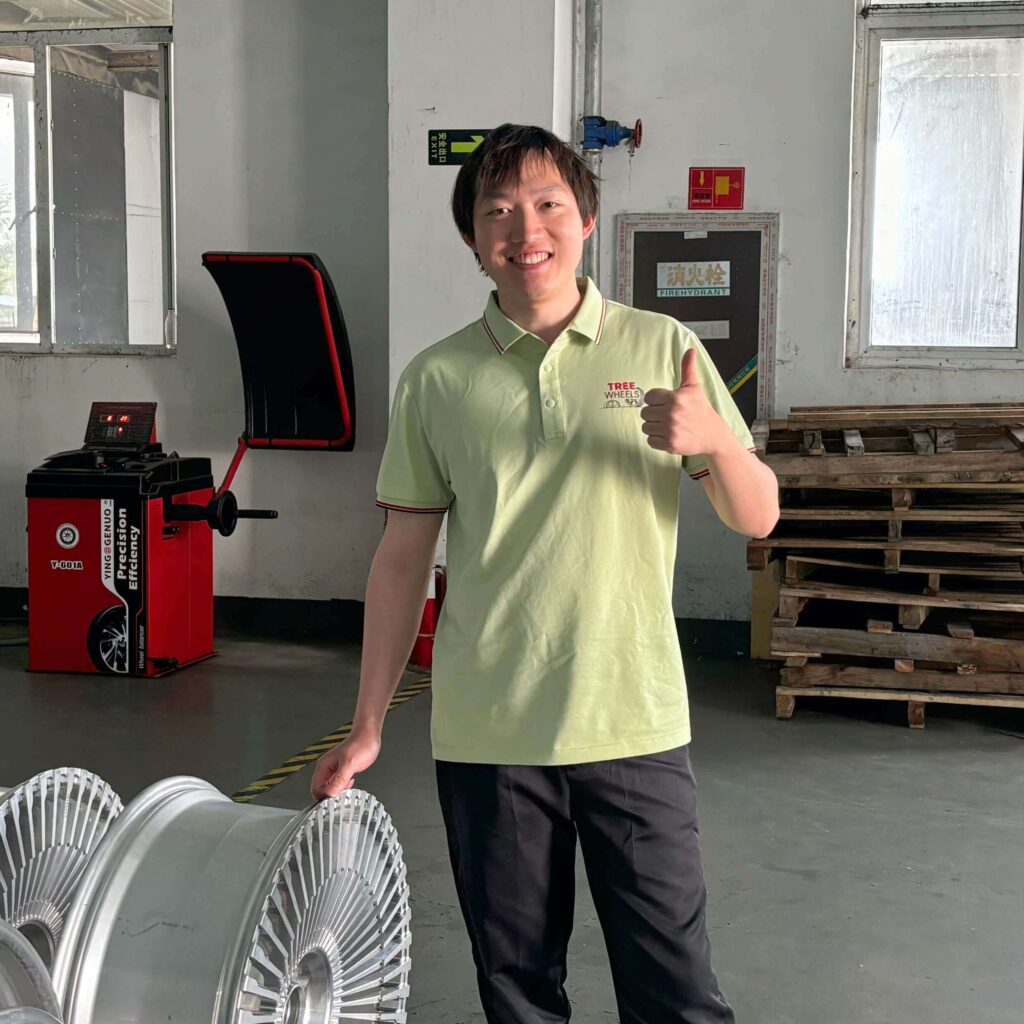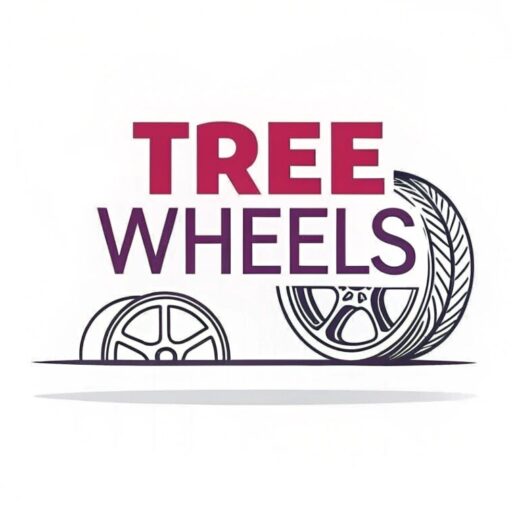I’ve always loved tweaking my car to make it stand out. But swapping rims? That’s a big decision. It sparks questions about performance, cost, and safety. Let’s dive in.
Changing rims impacts your car’s look, performance, and handling. High-quality rims, like Tree Wheels’ forged wheels, enhance style and strength when sized correctly.

I’m excited to share what I’ve learned about rims. From style to performance, let’s explore how new rims change your car. Keep reading for practical tips.
Is It Worth Changing Rims on Your Car?
I remember my first car—a beat-up sedan. New rims made it feel premium. But the cost and effort? I wondered if it was worth it.
New rims boost your car’s style and value. Forged rims, like Tree Wheels’ customizable options, offer durability and unique designs for any budget.

Why Consider New Rims?
New rims transform your car’s appearance. They show off your personality. I chose sleek, black forged rims for my sedan. The compliments poured in. But it’s not just looks. Quality rims improve durability. Forged wheels, like those from Tree Wheels, resist cracks better than cast ones. They’re lighter, too, which can save fuel.
Cost vs. Value
Rims vary in price. Basic ones cost a few hundred dollars. High-end forged rims? Thousands. I spent $1,200 on mine. It felt steep, but they lasted years. Resale value also rises with premium rims. Shops in the USA and Dubai often see this trend. Consider your budget and long-term goals.
Customization Options
Customization makes rims special. Tree Wheels offers sizes, colors, and finishes tailored to your car. I sent them my specs, and they nailed the design. This flexibility ensures your rims fit perfectly, avoiding issues like rubbing or poor handling.
Does Changing Rims Affect Performance?
I once swapped rims without checking specs. The car felt sluggish. It taught me performance matters as much as style. So, how do rims impact your drive?
Rims affect handling, acceleration, and braking. Lighter forged rims, like Tree Wheels’ one-piece designs, improve speed and control compared to heavier stock rims.

Weight and Handling
Lighter rims reduce unsprung weight. This means better suspension response. My new forged rims shaved pounds off my car. Cornering felt sharper. Tree Wheels’ one-piece rims, made in 15–20 days, prioritize this. Heavier rims, though, can slow acceleration. Always check weight specs.
Material Matters
Forged rims are stronger than cast ones. They handle stress better. I learned this when my old cast rims cracked on a pothole. Forged options, certified to JWL standards, resist damage. Tree Wheels ensures DOT compliance, giving peace of mind for performance drivers.
Trade-Offs
Performance gains come with trade-offs. Lighter rims might mean less comfort on rough roads. I noticed this on my modified sedan. If you prioritize speed, it’s worth it. Tell your rim supplier about mods like brake upgrades. They’ll adjust designs to balance performance.
Does Changing Rim Size Affect Your Car?
I thought bigger rims always looked better. But when I upsized without research, my car handled poorly. Size matters more than I realized.
Larger rims can improve grip but may reduce comfort. Correct sizing, as Tree Wheels ensures, prevents issues like rubbing or speedometer errors.

Impact on Ride Quality
Bigger rims often mean lower-profile tires. This improves handling but makes rides bumpier. I felt every pothole after upsizing. Smaller rims with thicker tires absorb shocks better. Tree Wheels customizes sizes to match your car’s needs, ensuring a balanced ride.
Speedometer and Handling
Oversized rims can mess with your speedometer. My car’s readings were off by 5 mph. Proper sizing avoids this. Tree Wheels uses your car’s specs to match rim and tire dimensions. This keeps handling precise and gauges accurate.
Compatibility
| Rim Size | Pros | Cons |
|---|---|---|
| Smaller | Smoother ride, better fuel efficiency | Less grip, basic look |
| Larger | Better handling, premium style | Harsher ride, higher cost |
Always share mods like suspension changes with your supplier. I did this with Tree Wheels. Their 3D models ensured my rims fit perfectly, avoiding clearance issues.
Do New Rims Affect Alignment?
After installing new rims, my car pulled to one side. I panicked, thinking I’d wasted money. Turns out, alignment was the issue. Let’s explore why.
New rims can affect alignment if improperly sized or installed. Tree Wheels’ precise designs and post-installation checks ensure your car tracks straight.

Why Alignment Matters
Alignment keeps tires even and steering straight. New rims, especially larger ones, can shift alignment. My sedan’s new rims caused uneven tire wear. A quick alignment fixed it. Tree Wheels advises checking alignment after installation, especially for custom sizes.
Installation Precision
Poorly installed rims stress suspension parts. I learned this the hard way. Bolts weren’t torqued evenly, causing wobbles. Tree Wheels’ packaging—foam and sturdy cartons—protects rims during shipping. Their designs fit OEM specs, reducing alignment risks.
Maintenance Tips
Get an alignment check after new rims. It costs $50–$100 but saves tires. I do this yearly now. If you’ve modified brakes or shocks, tell your supplier. Tree Wheels adjusts designs to maintain alignment, ensuring long-term stability.
Conclusion
New rims enhance style, performance, and value but require careful sizing. Tree Wheels delivers high-end forged wheels with sincerity and precision.
Discover Tree Wheels’ custom forged wheels at treewheels.com.



